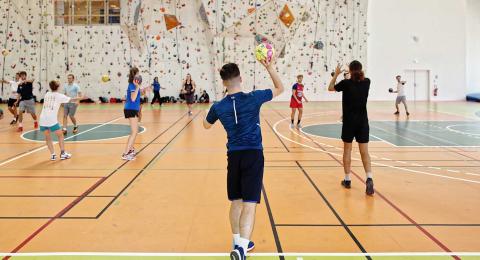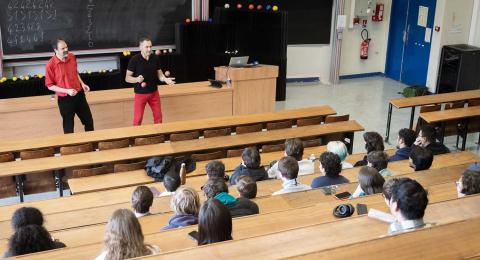M2 Computer & Network Systems



Information
Skills
Memorise the basic concepts of computer systems
Objectives
The mission of the Computer & Network Systems program is to provide students with the fundamental principles and techniques to become a system architect in the broad sense.
Two different, complementary, areas are proposed in the current curriculum:
- a Networked Systems track, and
- an Autonomous Systems track.
The aim of the program is to give students all the necessary scientific bases for the design of these systems.
The emphasis of the Networked Systems track is on deploying, managing, controlling and optimizing large-scale and high-performance IT infrastructures.
The emphasis of the Autonomous Systems track is on the design of systems with an intrinsic capacity to adapt to changes, that is systems capable of self-configuration, self-organization, self-healing, self-learning, self-regulation, self-optimization and self-protection.
On a scientific level, the objective is to present the necessary knowledge on formal methods for the design, verification and test of complex systems; artificial intelligence (machine learning, reinforcement learning, multi-agent systems, ...); models of performance (automata, Petri nets, queues, ...) and optimization methods (game theory, multi-criteria (including energy) optimization, ...).
Fees and scholarships
The amounts may vary depending on the programme and your personal circumstances.
Capacity
Available Places
Supporting documents
Compulsory supporting documents
Rank of previous year and size of the promotion.
Copy diplomas.
Motivation letter.
All transcripts of the years / semesters validated since the high school diploma at the date of application.
Curriculum Vitae.
Detailed description and hourly volume of courses taken since the beginning of the university program.
Additional supporting documents
2nd letter of recommendation (compulsory for candidates who have already been enrolled in higher education in France before).
Letter of recommendation (compulsory for candidates who have already been enrolled in higher education in France before).
Referring contact information (compulsory for non-international applicants).
Certificate of English level.
Certificate of French (compulsory for non-French speakers).
VAP file (obligatory for all persons requesting a valuation of the assets to enter the diploma).
The application procedure, which depends on your nationality and your situation is explained here : https://urlz.fr/i3Lo.
Supporting documents :
- Residence permit stating the country of residence of the first country
- Or receipt of request stating the country of first asylum
- Or document from the UNHCR granting refugee status
- Or receipt of refugee status request delivered in France
- Or residence permit stating the refugee status delivered in France
- Or document stating subsidiary protection in France or abroad
- Or document stating temporary protection in France or abroad.





